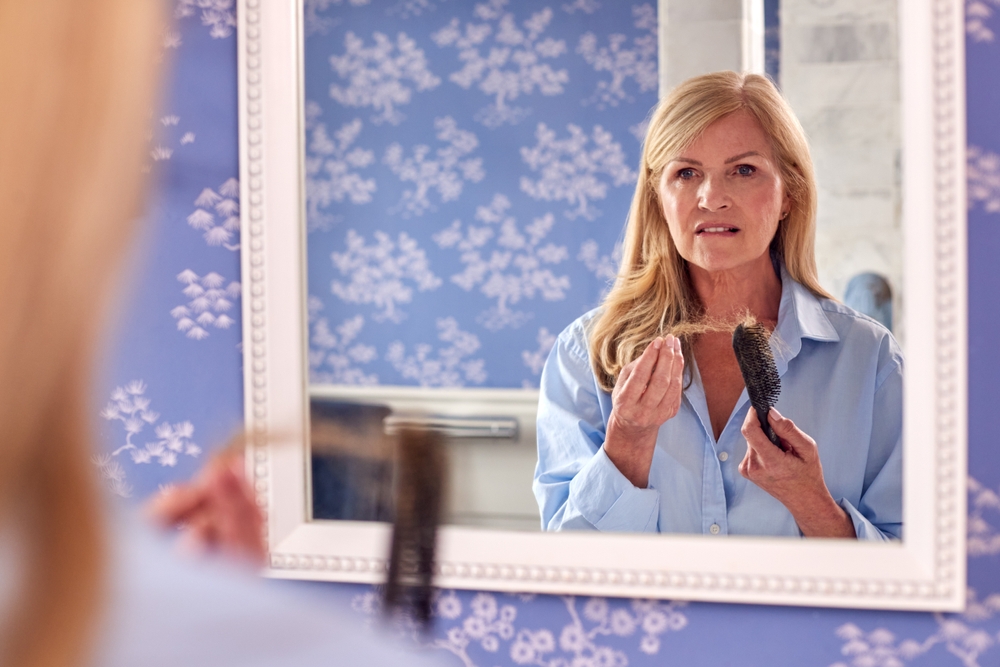Menopause can feel like an emotional and physical whirlwind, and on top of everything, hair loss can make it even harder. With all the changes—hot flashes, mood swings, and other symptoms—you’re already managing, dealing with thinning hair can feel like just one more challenge in a time that’s already tough.
What causes hair loss in menopause?
First off, menopause lowers oestrogen levels. Oestrogen is a hormone that helps keep your hair healthy and growing. When oestrogen drops, it can mess with your hair’s growth cycle, leading to thinning and more shedding. It’s like your hair’s support system has been turned down, making it harder for your hair to stay thick and strong.
But hormones aren’t the only issue. Menopause can also bring stress—whether it’s from dealing with symptoms or life changes. Stress can make hair loss worse, adding to the challenge of this time.
Additionally, menopause can change how your body uses nutrients. You might need different vitamins and minerals, and if you’re not getting enough, your hair might thin out. Iron and other nutrients are important for hair health, so deficiencies can make your hair weaker and more likely to fall out.
Some medications you might take during menopause can also affect your hair.
How to stop menopause hair loss?
If you’re dealing with hair loss during menopause, there are several steps you can take to help manage and reduce it. Here’s a practical guide to support your hair health during this time.
Be gentle on your hair
Choose shampoos and conditioners designed for thinning hair. Look for products with ingredients like biotin and keratin, which can help strengthen your hair and promote growth.
Try to limit the use of harsh hair treatments and styles that can cause damage, like excessive heat or tight hairstyles. Opt for gentle brushing and avoid over-processing your hair with dyes or chemicals.
Take care of your diet
Eating a balanced diet is crucial. Make sure you’re getting enough vitamins and minerals that support hair health, such as iron, vitamin D, and B vitamins. Foods like leafy greens, nuts, and fish can be great additions to your diet.
Reduce your stress levels
Stress can worsen hair loss, so finding ways to manage it is important. Practice relaxation techniques like yoga, meditation, or deep breathing exercises. Even regular physical activity can help reduce stress and improve your overall well-being.
Consider treatment
Finasteride is a prescription medication that can help with hair regrowth. It works by reducing levels of a hormone that contributes to hair loss. Taken as a daily pill, finasteride has been shown to be effective for many people in promoting hair growth and slowing down hair loss.
Frequently asked questions about hair loss
What are the main causes of hair loss during menopause?
Hair loss during menopause is mainly caused by hormonal changes, decreased oestrogen levels, stress, and nutritional deficiencies.
How can I prevent hair loss caused by menopause?
Prevent menopause-related hair loss by using hormone therapy, maintaining a balanced diet, managing stress, and using hair-friendly products.
Are finasteride pills effective for treating hair loss in menopause?
Yes, finasteride pills can be effective for treating hair loss in menopause by reducing hormone levels that contribute to thinning hair.

